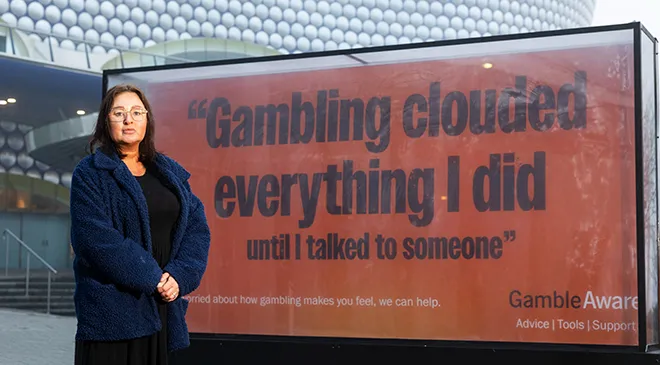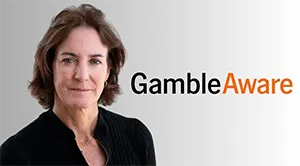 According to research data gathered by the independent charity GambleAware, the problem gambling rate in the West Midlands stands at 3.9%, with 168,000 individuals in total being affected. The locations that are most severely impacted include Coventry (5.1%), Birmingham (4.5%), and Sandwell (4%), and the overall data shows that adults residing in the West Midlands are 25% more likely to fall victim to problem gambling in comparison to the average for Great Britain.
According to research data gathered by the independent charity GambleAware, the problem gambling rate in the West Midlands stands at 3.9%, with 168,000 individuals in total being affected. The locations that are most severely impacted include Coventry (5.1%), Birmingham (4.5%), and Sandwell (4%), and the overall data shows that adults residing in the West Midlands are 25% more likely to fall victim to problem gambling in comparison to the average for Great Britain.
Stigma is seen as one of the core factors preventing those struggling from seeking help, with a staggering 75% of problem gamblers expressing that they cannot talk about the issue with their family and friends. Moreover, GambleAware’s data has revealed that people belonging to minority groups have a 42% chance of falling victim to problem gambling (compared to 20% for white British people), and 28% feel that the gambling struggles of one individual would “bring embarrassment and shame” to those belonging to the same group.
This type of information highlights how stigma is intertwined with problem gambling, which is why GambleAware recently launched a campaign that aims to directly address the problem and encourage victims of gambling harm to look for help.
As part of the charity’s efforts, GambleAware installed a unique billboard in Birmingham’s St Martins Square, which has a mechanism that gradually fills the billboard’s transparent casing with smoke. This serves as a visual representation of the campaign’s message, which reads; “Gambling clouded everything I did until I talked to someone.” The said message is backed by data, as GambleAware’s research has shown that 76% of those who have been successful in reaching out have experienced improvement in how they felt afterwards.
CEO of GambleAware Zoë Osmond issued a statement on the topic, stressing the severity of gambling harm, in addition to how she deemed it vital for gamblers to be informed about what services they can access and that “they feel safe to come forward.”
The Good Law Project Is Not Convinced of GambleAware’s Campaigns
 While GambleAware’s efforts are seen by many as adequate, some are not convinced of the charity’s intentions, as shown in a recent complaint to the Charity Commission filed by Annie Ashton, who lost her husband to suicide due to problem gambling in 2021, gambling expert Will Prochaska, and the Good Law Project organisation. In the complaint, it is alleged that GambleAware’s advertising campaigns have exacerbated feelings of shame and have blamed victims for losses incurred while gambling.
While GambleAware’s efforts are seen by many as adequate, some are not convinced of the charity’s intentions, as shown in a recent complaint to the Charity Commission filed by Annie Ashton, who lost her husband to suicide due to problem gambling in 2021, gambling expert Will Prochaska, and the Good Law Project organisation. In the complaint, it is alleged that GambleAware’s advertising campaigns have exacerbated feelings of shame and have blamed victims for losses incurred while gambling.
An example given was the “Bet Regret” ad, in which a bettor is chastised for trying to chase his losses. GambleAware’s self-assessment tool was also criticised for reportedly encouraging victims to “gamble responsibly” and wager less often as opposed to halting their gambling activity altogether. These issues, along with how GambleAware’s funding is provided by the gambling industry in the form of donations, are why the Good Law Project has called for the Charity Commission to launch an investigation into GambleAware.
Zoë Osmond commented on the matter after being contacted by media and publishing company NEXT.io and dismissed the accusations as “both baseless and highly damaging.” She told NEXT.io that GambleAware’s campaigns are both informative on how anyone can be impacted by problem gambling and serve to “break down barriers for support.” Osmond continued, emphasising GambleAware’s independence from the gambling industry, and also pointed out that the organisation has campaigned for more regulatory oversight on the promotion of gambling and that it has supported the UK Government’s decision to implement a statutory levy when it comes to the gambling industry.
According to Chair of the Lived Experience Council Ben Howard, who also talked with NEXT.io, the Good Law Project’s allegations are “highly damaging and stigmatising for those needing support” given just how helpful GambleAware’s National Gambling Support Network has been for him during his own journey to recovery and for many others. In addition, GambleAware’s recent stigma-related campaign has received much support, with former Stoke City footballer Tony Kelly, Bluepool FC, Armada FC, the Football Supporters’ Association, and other individuals and organisations being among the campaign’s official supporters.
- Author


